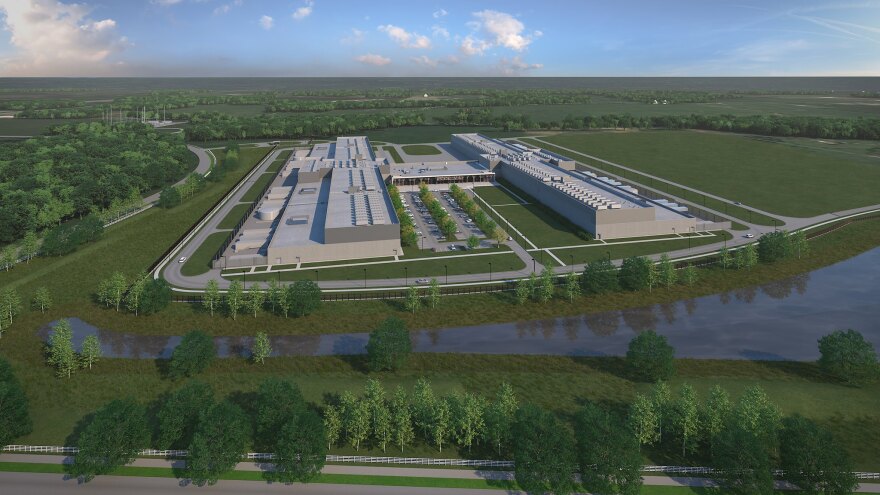Social networking giant Facebook did as was reported this week, announcing announced it will build a new, 970,000-square-foot data center in Central Ohio. And the company is doing it with the help of local and state tax incentives.
But the terms of those agreements weren’t easy to come by.
Rachel Peterson, Director of Data Center Strategy and Development at Facebook, says this is the 10th of its kind for Facebook.
“It’s going to be delivering hundreds of millions of dollars of investment to the local community and the state as well as thousands of construction jobs and hundreds of full time operational jobs,” Peterson says.
The proposed data center in New Albany, near the line that divides Franklin and Licking Counties, will be powered by 100 percent renewable energy. An official statement put out by the public relations firm working with Facebook on the project says there will be 100 permanent jobs created by the project.
Peterson says those will be high tech jobs, and explains the employees will operate the data servicing at the center. But Facebook wouldn’t disclose what the pay would look like.
“We don’t actually comment on the pay of our employees but we are a very competitive employer,” Peterson says. “We are looking at high quality jobs.”
People who work in construction trades are hoping they will benefit from the project. That includes Jeff Rush, a business representative for Sheet Metal Workers, Local 24, who says it’s a big deal.
“Our members would be installing the heating and cooling portion of the work, possibly the metal siding, the exterior insulated siding panels if there are any, which I believe there are on this project,” Rush says. “That’s all stuff that falls under our scope of work.”
Also involved: A lot of state and federal tax credits. But the event did not include many details.
New Albany mayor Sloan Spalding says the Facebook deal with his city requires a minimum investment.
“They have a payroll threshold that they have to meet under our agreement and most of the companies, the data centers we have, have no trouble meeting that threshold,” Spalding says.
And John Minor, the leader of JobsOhio, the state’s private, non-profit, job creation company, was involved in negotiating the deal. Minor says Facebook’s investment is significant.
“This is actually the second largest capital investment that we have seen here in the state since JobsOhio started,” Minor says. “Now that excludes a lot of the energy and shale projects we’ve worked on, but this is very significant from a capital investment perspective.”
Some key details of the agreements are known and some are still being worked out. Ohio’s Tax Credit Authority approved a job creation incentive for 2 percent of the new Ohio employee payroll from this year to 2026, provided that Facebook creates 50 new jobs and $4 million in new annual payroll. Facebook estimates the value of that to be more than $834,000.
And the state has granted a 100 percent sales tax exemption for the facility for as many as 40 years. The total price tag for that part of the package is more than $37 million.
Gov. John Kasich says it’s worth the investment and could help attract similar investments in the future.
“I’ll tell you one thing. It’s not going to take us 40 years to make back the investment we make,” Kasich says. “We don’t buy deals.”
Still, some who have studied these types of deals, but not this particular one, have questions about all of the incentives being offered.
“We know that the state investment is probably about $37 million in a 40 year sales tax exemption primarily but also some income tax breaks, the job creation tax credit. If we had that type of investment happening on the floor during budget discussions, there would be hearings,” says Wendy Patton of the progressive research group Policy Matters Ohio. “Legislators would question it. And stakeholders from many different perspectives would come in to testify about it. We have none of that here.”
Patton says more transparency is needed for deals like this one, but she knows that’s not likely to happen anytime soon.
“Big money deal, a lot of impact, very little information,” Patton says. “So it’s the way the game is played but we think there’s a lot that could be done to improve the game.”
Now that the money is there for the Facebook project, the building begins. The project is expected to be complete in 2019.





